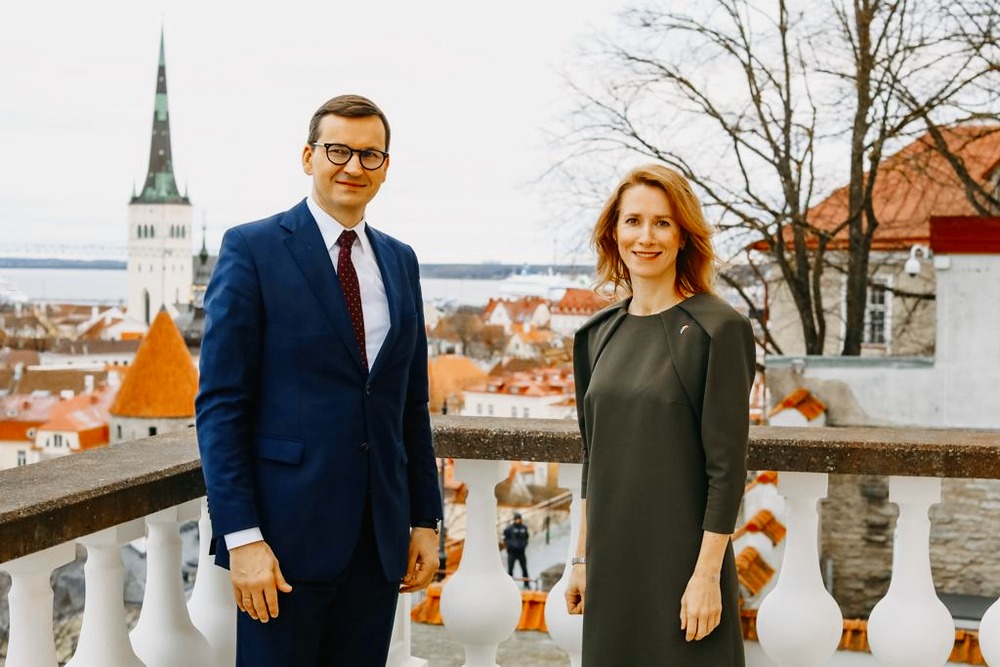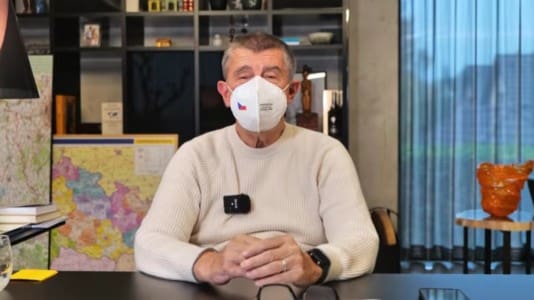Mateusz Morawiecki’s visit to Estonia, Lithuania and Latvia in less than a day opens up a new diplomatic offensive which is meant to strengthen European unity in face of an increasingly brutal forms of hybrid warfare and inhumane blackmail utilized by the governments of Russia and Belarus.
This is the right move from Poland’s government. First, it is smart for those nations most affected by migration pressure — Poland, Lithuania and Latvia — or threatened by it (Estonia from the side of Russia), to produce a unified response. Yet, this also involves nations which, as Morawiecki underlined, remember Soviet rule and are seeing the similarities between today’s methods and that period, which are made up of propaganda, lies, cynicism and lack of respect for human lives and international law.
What will follow are visits to Western countries that are crucial to the EU and NATO, with this strengthened allied mandate.
I listened to all three press conferences — the one with Estonian PM Kaja Kallas, Lithuanian PM Ingrida Simonyte and Latvian PM Artur Karins.
I was struck by the precise severity of the evaluation of the situation by our partners and their full awareness of the degree of coordination and cynicism of the attack that we are dealing with. One message in particular was very clear: the humanitarian crisis is taking place solely in Belarus, which brought the migrants in and has been cynically abusing them. We are all dealing with hybrid warfare, blackmail and state terror on our borders.
There is a shared sense of danger and a conviction that one does not negotiate with terrorists. This crisis is an attack on EU and NATO borders which must be repelled and Poland has shown how to accomplish this goal.
There was also an embarrassing silence concerning Angela Merkel’s hasty phone calls to Lukashenko and Putin, because how can one refer to such a stab in the back in a diplomatically acceptable manner?
There is a common sense of pride that the Baltic States, no matter their differences in other areas, see the current threat in the same light. Only the Polish prime minister could merely boast about having just common social support.
The Baltic State prime ministers are politicians who strongly differ between each other. In the majority of cases, they are closer to the EU mainstream than the United Right. Yet, none of them even considered the idea to hand the whole matter over and allow for underhanded negotiations between Merkel, Putin and Lukashenko.
Everyone is aware of which historic pacts this would be reminiscent of.
Morawiecki’s condensed visit to the Baltic States was a well thought-out operation which turned out to be a huge success that truly strengthened a common front.
Simultaneously, it showed how total and cynical the Polish opposition is and how prepared it is to play games even with Lukashenko, just so that it can oppose the Polish government and support Brussels’ illegal suspension of funds to Poland.
It is shameful for a Pole to have to write this, but we have to look the truth in the eyes: no other country in our region has an opposition that is so disloyal towards their own country and nation. This is Poland’s greatest weakness at this time.
No other prime minister is forced to simultaneously internally fight with people who automatically take the aggressor’s side and with media which are perpetuating his propaganda, lies and moral blackmail.
How is it possible that Latvia’s prime minister can openly call things out as they are and declare that the migrants storming Poland’s borders are a weapon in the hands of a regime, and no opposition leader in Poland is able to do the same?






